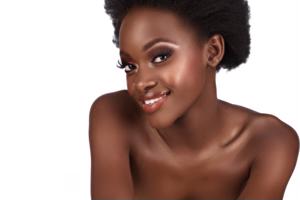
Summer is almost here, and while you're getting your African American skin ready for the heat by getting products that contain SPF and searching for new brightly colored cosmetics you may also be considering some hair removal options. While you're waxing and plucking in preparation for the beach, you may want to ask your boyfriend if he's ever considered trimming down for the summer season.
Recently, California spa worker and skin care expert Deborah Spalla offered some suggestions for what areas of the body men should consider to making hair-free. According to the expert, many men want to get rid of unwanted hair but just don't talk about it, so you may need to make the first move in the conversation.
First, she suggested taking care of any unwanted hair on the back, since this can be a turn-off on the beach. Next, men may want to look into waxing their Adam's apple, since it is easier than shaving and lasts longer.
"The most common areas for waxing are unibrows, ears and nose hairs," said Spalla. "Ouch?! Here's the painful truth about that. According to my clientele, the unibrow is not so bad, the nose really doesn't hurt at all and the ears hurt. Surprised me, too."









